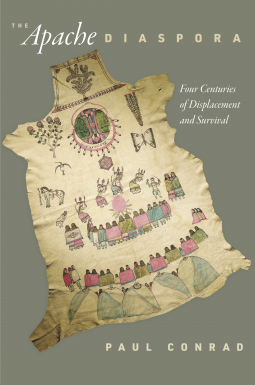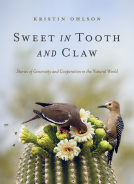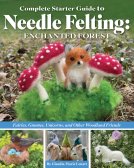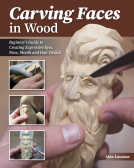
The Apache Diaspora
Four Centuries of Displacement and Survival
by Paul Conrad
This title was previously available on NetGalley and is now archived.
Send NetGalley books directly to your Kindle or Kindle app
1
To read on a Kindle or Kindle app, please add kindle@netgalley.com as an approved email address to receive files in your Amazon account. Click here for step-by-step instructions.
2
Also find your Kindle email address within your Amazon account, and enter it here.
Pub Date May 28 2021 | Archive Date Apr 16 2021
Talking about this book? Use #TheApacheDiaspora #NetGalley. More hashtag tips!
Description
Across four centuries, Apache (Ndé) peoples in the North American West confronted enslavement and forced migration schemes intended to exploit, subjugate, or eliminate them. While many Indigenous groups in the Americas lived through similar histories, Apaches were especially affected owing to their mobility, resistance, and proximity to multiple imperial powers. Spanish, Comanche, Mexican, and American efforts scattered thousands of Apaches across the continent and into the Caribbean and deeply impacted Apache groups that managed to remain in the Southwest.
Based on archival research in Spain, Mexico, and the United States, as well Apache oral histories, The Apache Diaspora brings to life the stories of displaced Apaches and the kin from whom they were separated. Paul Conrad charts Apaches' efforts to survive or return home from places as far-flung as Cuba and Pennsylvania, Mexico City and Montreal. As Conrad argues, diaspora was deeply influential not only to those displaced, but also to Apache groups who managed to remain in the West, influencing the strategies of mobility and resistance for which they would become famous around the world.
Through its broad chronological and geographical scope, The Apache Diaspora sheds new light on a range of topics, including genocide and Indigenous survival, the intersection of Native and African diasporas, and the rise of deportation and incarceration as key strategies of state control. As Conrad demonstrates, centuries of enslavement, warfare, and forced migrations failed to bring a final solution to the supposed problem of Apache independence and mobility. Spain, Mexico, and the United States all overestimated their own power and underestimated Apache resistance and creativity. Yet in the process, both Native and colonial societies were changed.
Advance Praise
"The study of America's borderlands history is as incomplete as it is inadequate without consideration of Apache peoples and their centuries-long struggles for survival and autonomy. With breathtaking range and focus, The Apache Diaspora provides a powerful overview of nearly four centuries of Apache history and offers a series of sobering analyses into the varied phases of enslavement, warfare, and forced migrations that structured much of colonial and nineteenth-century history. A vital addition to the field."
—Ned Blackhawk, author of Violence over the Land: Indians and Empires in the Early American West
"The first comprehensive history of the Apache nations, this is a revelatory book of enormous importance. Ranging from North America to the Caribbean, Paul Conrad illuminates four centuries of violence, enslavement, resistance, diaspora, and survival. Reading The Apache Diaspora is to see American history itself anew."
—Pekka Hämäläinen, author of Lakota America: A New History of Indigenous Power
"Through deep research and amazing stories that pull the reader into the lives, hopes, and despairs of Apache individuals and families, Paul Conrad offers unique chronological breadth and perspective from which to view the centuries-long experience, burden, and legacy of enslavement and removal suffered by Native people within American history. The unremitting displacements endured by Apaches over four centuries go directly to the heart of their determination to evade imprisonment and to protect kinship integrity through mobility, as they transformed movement into a tool to achieve diplomatic, military, and sovereign advantage in their contests with foreign governments and would-be conquerors."
—Juliana Barr, author of Peace Came in the Form of a Woman: Indians and Spaniards in the Texas Borderlands
Available Editions
| EDITION | Other Format |
| ISBN | 9780812253016 |
| PRICE | $34.95 (USD) |
Featured Reviews
In Paul Conrad’s eye opening book, we learn about the destruction of some of America’s Native American people. It is quite sad that this Holocaust happening on American soil, and this book is a necessary read for all. The facts presented in this book are quite shocking but necessary knowledge.
Some books have the power to move you from the very first line. And very very few ones carry the grip till the last line. The Apache Diaspora : Four Centuries of Displacement and Survival by Paul Conrad is a very special book according to me which intriguingly tells about the native Apache people of North America. Throughout the book we have the description about these people's suffering, pain and loss. But the author not only presents us the painful jorney of survival from generation to generation, he also writes about the resistance from these people to this 'genocide'. This book was a eye opener for me to know about these indigenous people and became one of my all time favourite nonfiction books. I still can't forget about the displacement, enslavement and migration of Apache diaspora under colonial mindset of the society which remains as the main theme throughout the book. Though this book also boldly presents the role of empire and nation-state making the suffering of the people more worse. But the resistance against the continuous murder and missing people and lastly but most importantly the story of survival most impressed me and had left a permanent impact on me.
Throughout the book we have vivid pictures and well researched maps and graphs to show about the migration, diasporic problems and journey.
I loved this book so so much. I would definitely recommend it to any Nonfiction fan. For me it was a five star read.
It was an ARC from Netgalley and i heartily thank both Netgalley and the University of Pennsylvania Press of Philadelphia for it. Thanks for this amazing read.
 Suanne S, Reviewer
Suanne S, Reviewer
Though I was hesitant to read a book about Apaches written by a white man, I must admit that Conrad’s The Apache Diaspora: Four Centuries of Displacement and Survival is a fascinating and erudite book. His research into archives in the United States, Spain, Mexico, as well Apache oral histories, he shows how the dispersion of the Apaches is truly a diaspora, as those pushed out of the American Southwest retained a strong bond to their people and their land. I found it amazing that Conrad managed to compress four centuries into a single volume. I found that I wanted to know more about particular subjects, but realized Conrad couldn’t delve into every single issue.
Though all indigenous American groups suffered through similar attempts at subjugation by genocide, the Apaches, because of their geographic position between the forces of Spanish, Mexican, American, and Comanche armies, were particularly affected. Through four centuries, they faced slavery and forced migrations in efforts to eradicate their way of life. Families were torn apart and scatted throughout the North American continent and into the Caribbean, Spain, and Mexico.
The Apache Diaspora looks deeply at genocidal issues, how the Indigenous people survived, how the African diaspora intersected with that of the Apaches. Again, each Indigenous group has their own story. Much of what Conrad has written cannot be applied to every single Indigenous group, but a good deal can be transferred: centuries of enslavement, warfare, and forced migrations. The United States, as well as the other imperial forces involved, should reevaluate their treatment of Apaches and other Indigenous tribes and consider reparations.
The Apache Diaspora is a well written annotated history of the Apache people presented by Dr. Paul Conrad. Due out 28th May 2021 from The University of Pennsylvania Press, it's 400 pages in print and will be available in hardcover and ebook formats.
This is one book in UPenn's: "America in the 19th Century" this volume delineates the roughly four centuries of survival, genocide, upheaval, exploitation, and fortitude of the Ndé (Apache) people of the North American southwest.
This book, while academically rigorous and prodigiously annotated throughout is refreshingly accessible to non-academics. The language is understandable and readable and the author allows the subjects to speak eloquently for themselves, through their photos and the ephemera (diaries, family oral history, and archival evidence) they left behind.
I found myself often moved emotionally during reading this book and affected deeply by the plight of the people and their families depicted here. Seeing the resilience and mettle of these people against the backdrop of the nauseating prejudice and cruel mishandling by everyone was often difficult to read and process.
The text is liberally annotated and illustrated with line drawings, facsimiles of period documents, and an impressive number of photos. Although the treatment is admittedly academic, there's enough annotation and chapter notation and bibliography to satisfy the staunchest pedant - at the same time, there's a clear and compelling biographical narrative. I'm amazed that there's enough period record to reconstruct the stories of these families after so many years.
Five stars. I would recommend this book to readers of American history, war history, American culture, classroom instruction in native history, or allied subjects, ephemera, etc.
Disclosure: I received an ARC at no cost from the author/publisher for review purposes.
 Reviewer 773202
Reviewer 773202
Great topic, but we need to seek out own voices. Please consider publishing work by individuals of color instead of furthering stories told by white people. I am white, living in a tribal member household by marriage, and I cannot possibly get it still.
 Robert S, Reviewer
Robert S, Reviewer
This is not a full history of the Apaches - it's exactly what the title says: an account of the 500 year experience of Apaches being attacked, scattered, abducted, enslaved, kidnapped, and blackmailed. It begins with the full array of Apache peoples and then drops each subgroup (Plains Apaches, Mescalero Apaches, etc.) when that group finds a permanent settlement. By the end, the author's focus is entirely on the "Southern Apaches" - the people of Cochise, Geronimo,. et al - and their harrowing and near genocidal experiences.
Conrad places a heavy emphasis on the Apache sense of family as an organizing principle of their lives and ultimately as the wellspring of their survival and resilience - I don't know enough comparative history to say whether this is unique to Apaches versus other indigenous North Americans.
There is a lot of detailed information here, and the research presented is important to an understanding of Native American history. It provides great insight into the Apache experience and helps deepen our understanding of the cost to Native Americans to the European invasion.
This was a tough read, not due to the exquisite quality of both the research or the information, but the subject matter. Much like with any time I read a book on the Holocaust, or certain true crime books, I try to avoid reading tons of it at any time due to the heaviness of it all, and nothing can be more heavy than the systematic genocide of an entire group of peoples for half a millennium - even extending into modern times. families were ripped apart, people were sold into slavery, and in an attempt to make them "civilized" all number of abuses were employed to remove every ounce of anything that made them who they were.
Much like any book I read that deals with the topic of Spanish Colonialism, I seem to always come out the other side disliking them more and more. Not present day Spanish people, they are no worse than present day Germans despite their historical baggage, but man am I not a fan of their ancestors.
If you want to get a general idea of what "one" large group of Native Tribes went through during colonization, I'd read this book. It's easy to hand-wave the plight of the Native Americans as something that "wasn't that bad" or "their culture was dead anyway" or any other thing I've heard overtly racist people say = but the truth is, they had is so much worse than one can imagine. This is the sort of history I wish we taught in schools, because understanding what bad things happened in the past can ensure things like than hopefully won't happen in the future.
Paul Conrad is a professor of history at UT-Arlington, a school known for its Transatlantic History Graduate program (and they train indigenous people to do similar work). This book is obviously the culmination of years of research in disparate archives and fluency in multiple languages to read these sources.
Some good things here:
Early and recurring reminders and language that separates identities placed on native peoples and their self-identification, while tracing how native individuals and groups used the identities placed upon them to navigate and advocate with colonizers.
Using the lens of diaspora, a tool that hasn't yet been applied to the Apache, revealed a lot of new to me information about these peoples. It also is able to center their stories over any one colonizer. Transatlantic histories all too frequently focus on one specific locale or center the inquiry around European empires. It also puts the longer history of these peoples in context with multiple empires and native groups.
Some negatives:
This felt like a rewritten dissertation, with all the goods and bads about that. It's a LOT of repetition and can be a slog sometimes. I read light books in between chapters of this.
Conrad wasn't clear or specific with his use of "genocide." It seemed at times that he really meant "extermination." He seemed to always differentiate "genocide" from cultural extinction, which is part of the definition of "genocide."
Overall, pick up this book to see Apaches, and native history in general, in a different context. Highly recommended for graduate courses or upper level undergraduate courses. Excerpts for other contexts would likely also be useful.
While the information contained within was indispensable and fascinating, the delivery could have been better. And of course I would have preferred to have read this book if written by an Own Voices, Apache person. However, it was a jam-packed informative book that deftly covers 400 years of enslavement, forced migration, and murder. A moving testament to the resiliency of just some of the Indigenous people to whom this land truly belongs.


















